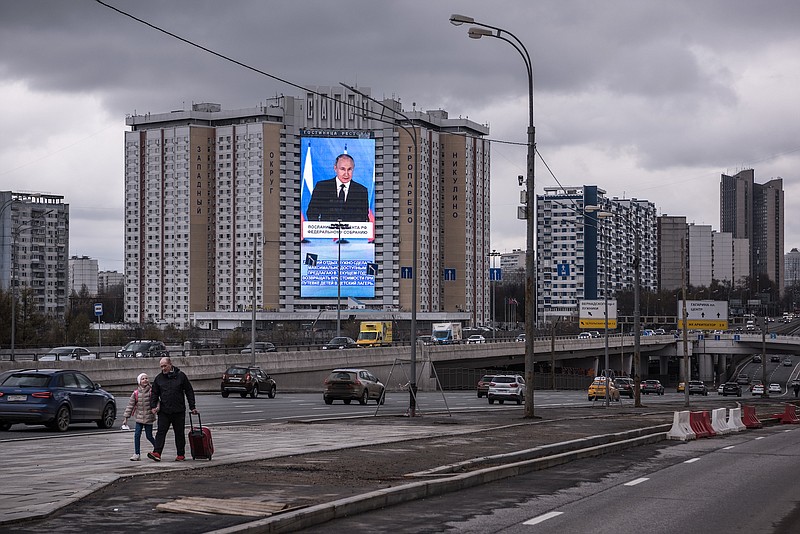My first reaction when I read the secret details from the Pandora Papers about how the world's rich hide their assets was: What else is new?
Do we need 11.9 million records leaked from 14 firms in the offshore financial services industries to tell us that Vladimir Putin's alleged mistress bought a luxury apartment in Monaco? Or that Jordan's king amassed $100 million in concealed property in Malibu, California, London and Washington?
Kremlin corruption under Putin and his oligarchs is legendary, and any Jordanian can talk of financial folderol in the royal palace. Is anyone startled when the investigators claim to have information on more than 330 politicians and public officials from more than 90 countries and territories, including many leaders?
No, because we - myself included - have become too inured to this stuff. In 2016 the Panama Papers, a similar investigative journalism cull, laid bare the corruption of the offshore banking industry, and nothing much happened.
Indeed, spiraling public corruption has not only become the new normal abroad but is ensconced at home. In fact, what bothered me most, in my initial reading of the Pandora Papers' details, was that they didn't focus enough on corruption here.
So I turned to Sarah Chayes, a leading expert on global and U.S. corruption networks and the links between them and author of "Thieves of State: Why Corruption Threatens Global Security, followed by On Corruption in America, and What Is at Stake."
"I am disappointed in the anti-corruption movement for not coming to grips with how we parallel corruption in other countries," she told me, "and for not taking on corruption power structures in our own [Western] countries."
Chayes came up against the links between U.S. and developing world corruption networks in Afghanistan. She had helped establish an anti-corruption task force as a special adviser to Gen. Stanley McChrystal.
Her anti-corruption efforts, and those of military officials who backed her, were thwarted by networks of Afghan officials, who reinvented their relatives as businessmen, and U.S. policies that fed piles of money to these Afghan networks for aid and training. Afghanistan's elites were grouped in networks of political leaders, businessmen, and criminals. "They were incredibly successful at enriching themselves," she says, "but were not even trying to govern."
These corrupt networks were similar to Kremlin elites, where oligarchs close to Putin fatten off the state in networks intertwined with criminals who often act as enforcers.
Chayes worries that a focus on corruption abroad "reinforces the idea that the kleptocrats are over there. It is a way of distancing."
This takes American minds off a series of immense economic and military failures caused by networks of businessmen, contractors, deregulators, and politicians dating back to the 1980s.
Who remembers the Reagan-era deregulation that led to the collapse of the savings and loan industry? Or the Clinton era's kowtow to reckless bankers who brought us the financial crisis of 2008?
U.S. networks, Chayes says, include officials in a Defense Department procurement system where former senior officials cycle to companies that get big government contracts. The networks also include the richest donors in what has become a pay-to-play political system, encouraged by the Supreme Court's 2010 Citizens United decision.
So it's fine for the Pandora Papers to open the box on foreign states and their offshore havens, but better to focus on U.S. corruption. Let's lay bare more than one South Dakota tax haven. Let's check out corruption networks that are endangering America's political future, hastening environmental catastrophe, and prolonging the pandemic - before we also become a failed state.
The Philadelphia Inquirer
